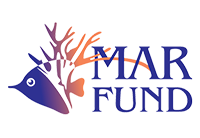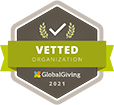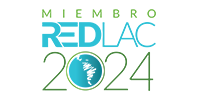
CONSIDERACIONES:
- MAR Fund es una organización comprometida con la equidad y la diversidad en el lugar de trabajo. Nuestra política de empleo garantiza que todas las decisiones —desde la contratación hasta el desarrollo profesional— se basan en el mérito y las calificaciones individuales. Tenemos una política de cero tolerancia a cualquier forma de discriminación o acoso. Como organización dedicada a la conservación, restauración y uso sostenible de los ecosistemas marinos y costeros del Arrecife Mesoamericano, buscamos integrar perspectivas diversas y fomentamos la participación de candidatos de todos los sectores y trasfondos sociales para fortalecer nuestra misión.
- Los proponentes deberán asumir todos los costos asociados con la elaboración y la presentación de las propuestas que someterán a evaluación de MAR Fund en el marco de la/las presente(s) convocatoria(s), por lo que reconocen que no existe obligación alguna por parte de MAR Fund de cubrir dichos costos – ya sea total o parcialmente – ni de proporcionar ningún anticipo o compensación en caso de que su(s) propuesta(s) no resulte elegida(s).
- Los proponentes reconocen y aceptan que la elaboración de la/las propuesta(s) no constituye una obligación financiera por parte de MAR Fund, por lo que la responsabilidad económica y financiera de la elaboración de la(s) propuesta(s) es exclusivamente del/los proponente(s), independientemente del resultado del proceso de selección.
- El proceso de selección se desarrollará de acuerdo a los lineamientos internos de evaluación de MAR Fund y el resultado que emane del mismo será inapelable.
- Solo los proponentes que pasen a la siguiente etapa del proceso de selección serán contactados y debido al número de solicitudes MAR Fund no dará retroalimentación a los postulantes.

Términos de Referencia (TdR)
Mesoamerican Reef Fund (MAR Fund)
Asistente del Programa de Pequeñas Donaciones de MAR Fund
1. Antecedentes:
El Mesoamerican Reef Fund Inc. (MAR Fund) es un fondo ambiental regional cuyo objetivo principal es proteger la ecorregión del Arrecife Mesoamericano (SAM) compartida entre México, Belice, Guatemala y Honduras. Su misión es buscar, asegurar y facilitar financiamiento regional, fomentar alianzas y promover el desarrollo de capacidades para la conservación, restauración y uso sostenible de los ecosistemas marinos y costeros en el SAM.
MAR Fund fue establecido por cuatro fondos ambientales preexistentes, uno en cada país de la región: Fondo Mexicano para la Conservación de la Naturaleza (México), Protected Areas Conservation Trust (Belice), Fundación para la Conservación de los Recursos Naturales y Ambiente (Guatemala) y Fundación Biosfera (Honduras).
MAR Fund desarrolla sus actividades a través de seis programas: 1) Salvando nuestras áreas protegidas, 2) Pesca para el Futuro, 3) Cambio Climático, 4) Fondo Marino de Belice, 5) Agua limpia para el arrecife, y 6) Economía azul y regenerativa. Adicionalmente, apoya y articula redes regionales, como la Red de Conectividad, la Red de Restauración de Arrecifes y la Red de Sitios de Agregaciones Reproductivas de Peces.
El Programa de Pequeñas Donaciones (PPD) de MAR Fund es uno de los mecanismos de financiamiento más longevos y flexibles. Gracias a su adaptabilidad frente a los retos y amenazas regionales, el PPD ha apoyado proyectos estratégicos vinculados a todos los programas de la organización. El PPD es actualmente financiado por rendimientos de fondos patrimoniales aportados por la Cooperación Alemana a través de KfW y del Fondo Francés para el Medio Ambiente Mundial (FFEM), así como por fondos programáticos de Paul M. Angell Family Foundation. Estos recursos han permitido impulsar iniciativas locales que, entre otras, contribuyen a la protección de áreas marinas y costeras prioritarias y el uso sostenible de los recursos marino-costeros.
El PPD cuenta con dos ventanas financieras: 1) la ventana Tradicional, que se centra en contribuir a la conservación de las funciones ecosistémicas del SAM y a su resiliencia y 2) la ventana de la Iniciativa de Rescate de Arrecifes (RA), que busca apoyar a la restauración, repoblación y rehabilitación de arrecifes de coral del SAM. Una vez al año, organizaciones gubernamentales y no gubernamentales, instituciones académicas, organizaciones de la sociedad civil y grupos comunitarios organizados de los cuatro países de la región del SAM tienen la oportunidad de presentar propuestas que respondan a uno o más de los objetivos específicos establecidos en cada convocatoria.
Desde 2006, MAR Fund ha lanzado 18 convocatorias a través de las cuales se han apoyado 159 proyectos ejecutados por más de 40 organizaciones de la sociedad civil, la academia y el sector gubernamental en los cuatro países de la región. Información adicional sobre este programa está disponible en: https://marfund.org/
2. Objetivo general
Fortalecer y apoyar integralmente al equipo del Programa de Pequeñas Donaciones (PPD), asegurando una operación eficiente y una gestión técnica, administrativa y de cumplimiento efectiva, que garantice la correcta implementación, seguimiento y reporte de las actividades y proyectos financiados (ventana tradicional y RA), en coherencia con los estándares y lineamientos de MAR Fund.
3. Responsabilidades del contrato
Fortalecer y apoyar integralmente al equipo del Programa de Pequeñas Donaciones (PPD), asegurando una operación eficiente y una gestión técnica, administrativa y de cumplimiento efectiva, que garantice la correcta implementación, seguimiento y reporte de las actividades y proyectos financiados (ventana tradicional y RA), en coherencia con los estándares y lineamientos de MAR Fund.
- Apoyar en la preparación del borrador de los términos de referencia para la convocatoria anual – a ser aprobado por la Junta Directiva– y en su lanzamiento.
- Apoyar en el proceso de recepción y revisión de las propuestas recibidas durante la convocatoria anual.
- Aplicar el Ciclo de Proyectos y la Guía de Debida Diligencia de MAR Fund en el proceso de revisión de propuestas y durante el seguimiento y monitoreo de proyectos.
- Aplicar el Sistema de Gestión Ambiental y Social (SGAS) de MAR Fund y colaborar con la asistente técnica del SGAS para asegurar que los proyectos financiados a través de las ventanas del PPD cumplan con los compromisos ambientales y sociales establecidos.
- Apoyar la preparación de los Planes de Acción Ambiental y Social (PAAS) y los convenios de donación de las propuestas aprobadas.
- Dar seguimiento puntual a los PAAS de los proyectos aprobados, incluyendo el envío de recordatorios sobre informes relativos a quejas e incidentes y la revisión de entregables durante la implementación de las actividades.
Puede encontrar la lista completa de responsabilidades para este puesto en los Términos de Referencia clic en este enlace.
4. Supervisión
El/La Asistente del Programa de Pequeñas Donaciones reportará directamente a la Oficial del Programa de Pequeñas Donaciones.
5. Duración del contrato
Posición de tiempo completo. El contrato tendrá una duración de 12 meses, sujeto a renovación previa evaluación, con un período de prueba de tres meses.
6. Pago
Los honorarios se determinarán según la experiencia del/a consultor/a. El pago, que incluirá los impuestos correspondientes, se realizará de forma mensual contra factura. Se cubrirán los gastos de viaje para las actividades relacionadas con MAR Fund.
El contrato incluirá seguro médico y de vida durante su vigencia.
7. Lugar de trabajo
El/la consultor/a trabajará de forma remota y deberá residir en una de las principales ciudades de Quintana Roo, México.
8. Calificaciones y atributos
- Experiencia comprobada en el diseño, evaluación y gestión de proyectos ambientales y de conservación.
- Experiencia en la revisión de reportes financieros y técnicos.
- Formación o experiencia en conservación o ciencias ambientales; se valorará el conocimiento en manejo de recursos costeros y marinos, así como en áreas protegidas.
- Excelentes habilidades organizativas y atención al detalle, con capacidad para cumplir plazos establecidos.
- Experiencia en comunicación y habilidades para el trabajo colaborativo.
Más información sobre esta convocatoria, favor hacer clic en este enlace.
9. Documentación requerida
- Curriculum Vitae (versión completa en inglés y español), incluir foto reciente.
- Tres referencias profesionales (nombre, organización y correo electrónico)
- Carta indicando por qué es la mejor persona para el puesto (en inglés y español).
10. Fecha límite y contacto
La fecha límite para recibir la información requerida en formato Word o PDF es el 7 de abril de 2026.
Por favor remítala a la oficial del Programa de Pequeñas Donaciones de MAR Fund, Elisa Blanda, al correo electrónico eblanda@marfund.org.
11. Consideraciones
- MAR Fund es una organización comprometida con la equidad y la diversidad en el lugar de trabajo. Nuestra política de empleo garantiza que todas las decisiones —desde la contratación hasta el desarrollo profesional— se basan en el mérito y las calificaciones individuales. Tenemos una política de cero tolerancia a cualquier forma de discriminación o acoso. Como organización dedicada a la conservación, restauración y uso sostenible de los ecosistemas marinos y costeros del Arrecife Mesoamericano, buscamos integrar perspectivas diversas y fomentamos la participación de candidatos de todos los sectores y trasfondos sociales para fortalecer nuestra misión.
- Los proponentes deberán asumir todos los costos asociados con la elaboración y la presentación de las propuestas que someterán a evaluación de MAR Fund en el marco de la presente convocatoria, por lo que reconocen que no existe obligación alguna por parte de MAR Fund de cubrir dichos costos – ya sea total o parcialmente – ni de proporcionar ningún anticipo o compensación en caso de que su(s) propuesta(s) no resulte(n) elegida(s).
- Los proponentes reconocen y aceptan que la elaboración de la/las propuesta(s) no constituye una obligación financiera por parte de MAR Fund, por lo que la responsabilidad económica y financiera de la elaboración de la(s) propuesta(s) es exclusivamente del/los proponente(s), independientemente del resultado del proceso de selección.
- El proceso de selección se desarrollará de acuerdo a los lineamientos internos de evaluación de
MAR Fund y el resultado que emane del mismo será inapelable. - Solo los proponentes que pasen a la siguiente etapa del proceso de selección serán contactados y debido al número de solicitudes MAR Fund no dará retroalimentación a los postulantes.




